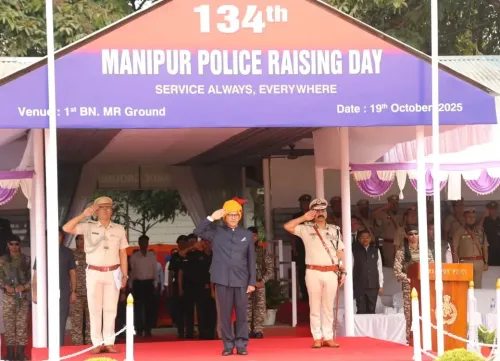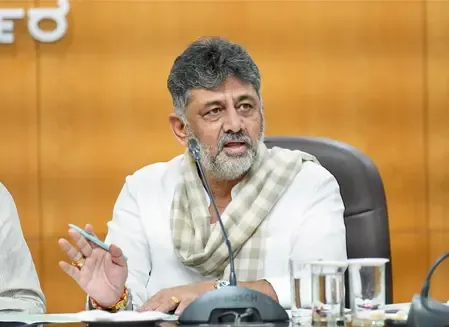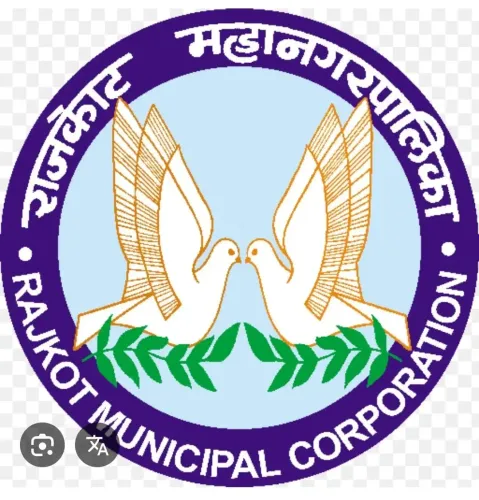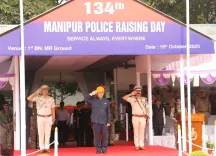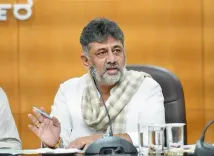What Happened on a Distant Island? The Oude Charge and the Spectacle of British Justice
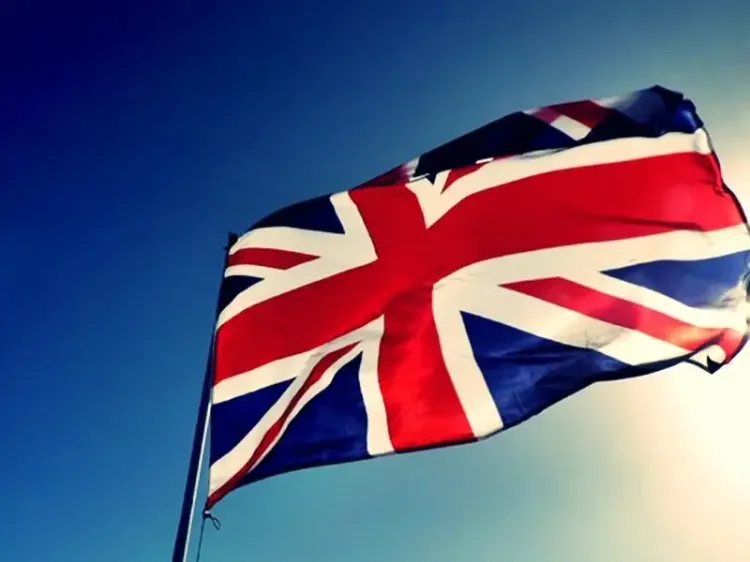
Synopsis
Key Takeaways
- British Parliament's Proceedings: The discussions on Oude highlighted the absence of Indian representation.
- Marquis Wellesley's Actions: His policies transformed a long-time ally into a vassal state.
- Imperial Justifications: The narrative framed resistance as rebellion.
- Financial Burden: Indian revenues funded extravagant British expenditures.
- Historical Reflection: The trial served as a mirror of imperial power dynamics.
New Delhi, Oct 19 (NationPress) In the summer of 1806, members of the British Parliament convened on a remote island, engaged in heated discussions regarding the fate of Oude (Awadh), a kingdom grappling with threats to its very existence and sovereignty. The voices in this discourse were not those of our own people or leaders; they belonged to foreign rulers who were exerting growing, unchecked power over our futures.
The formal inquiry into the actions of Marquis Wellesley, the former Governor-General, provides a compelling historical reflection. Viewed through an Indian perspective, this parliamentary examination was not merely about one individual; it was a stark portrayal of imperial machinery at work—a process where our rights were contested, our lands were bartered, and our voices were glaringly absent. The allegations against Wellesley—including accusations of criminal interference, land appropriation, and inciting rebellion—were a sanitized parliamentary account of a narrative marked by subjugation and loss for the people of Oude.
The Nature of the Accusation: From Ally to Annexation
The case against Lord Wellesley, meticulously outlined by Mr. Paull, illustrated a systematic pattern of aggression that turned a long-standing ally into a looted vassal state. The charge sheets presented to the House of Commons depicted a policy that had its origins in injustice and culminated in oppression. For the people of Oude, this was a painful reality.
Once protected under a treaty with the East India Company, that very shield became the pretext for their downfall. Under the pretense of safeguarding against external threats and enhancing governance, Lord Wellesley compelled the Nawab of Awadh to disband his forces and accept a larger, more costly British contingent. Subsequently, half of his territory was seized to fund this new garrison—a move that was framed in London as a strategic necessity but was perceived in Oude as a blatant infringement of sovereignty.
Parliamentary records reveal that critics like Mr. Paull highlighted this relentless encroachment, pointing out how, under the 'all-grasping' conquest system, Oude fell victim to a long list of Indian states—such as the Carnatic, Surat, and Ferruckabad—that were consumed by an unquenchable thirst for power. This policy directly contravened Parliament's own resolutions of 1782 and 1793, which prohibited territorial expansion in India. Nevertheless, such legal formalities discussed in London offered little consolation to a ruler whose authority was dismantled, and whose lands were stripped away under vague justifications.
The Theatre of Deliberation: A Proceeding Lacking Indian Voices
The discussions surrounding the Oude charge in June and July of 1806 unfolded as a surreal spectacle. Within the committee of the whole house, British parliamentarians cross-examined British witnesses, including former officials like Lord Teignmouth and military leaders like Sir Alured Clarke, regarding the revenues, military strength, and political dynamics of Oude. The entire process was an internal dialogue among the colonizers, with the people of Oude, the Nabob, and his ministers entirely voiceless and lacking representation to challenge the testimony or provide their own account.
Frequently engulfed in procedural disputes, the proceedings appeared tragically absurd from an Indian standpoint. Lengthy deliberations arose over whether a witness could be asked to opine on a treaty's interpretation or the justice of a specific action. While parliamentarians meticulously debated the rules of evidence, they seemed oblivious to the fundamental injustice of a process where the subject of inquiry remained voiceless. The persistent challenges in obtaining documents, a recurring complaint from accuser Mr. Paull, further emphasized the opacity of the system. He noted that some documents took nine months to be produced, indicating a process seemingly designed to manage political inconvenience in Britain rather than facilitate justice.
Justifications of Empire: Morality Reframed by Geography
The defense of Lord Wellesley, spearheaded by his relatives Lord Temple and Sir Arthur Wellesley, offered a revealing glimpse into the prevailing imperial mindset. One of the most shocking claims within the broader Oude charge was that of 'foul, deliberate, and cruel murder.' Sir Arthur Wellesley’s clarification was chilling; he asserted that local rulers, the Zemindars of Oude, had resisted the Company’s authority and declined to pay newly imposed land tributes. In response, the Governor-General dispatched the Bengal army to 'reduce those men by force,' leading to armed conflict and bloodshed. This, he contended, was not murder but a legitimate 'act of public power, enacted in support of the laws of the country.'
From an Indian perspective, this justification highlights the notion of 'geographical morality.' The 'laws of the country' enforced were those newly imposed by a foreign power. Resistance to these laws was deemed rebellion, and the killing of those who resisted was framed as necessary enforcement, not a massacre. Similarly, the broader subjugation of Oude was rationalized as a vital measure against the influence of France—an imperial rivalry that made Indian states mere pawns and prizes. This reasoning illustrated that, for the British, the sovereignty of an Indian prince and the lives of his subjects were secondary to the strategic imperatives of their global empire.
The Unseen Cost: A Debt Written in Indian Revenues
The debates touched upon yet never fully articulated the true cost of these policies for India. The charge of 'profuse, wasteful, unauthorized expenditure' against Wellesley was no mere abstraction. This extravagance, which encompassed the establishment of an opulent new college and the maintenance of a grand bodyguard, was financed by a burgeoning Indian debt and the revenues extracted from its people.
Parliamentary records indicate that the India Debt escalated from £11 million in 1798 to over £31 million by 1805. This debt was shouldered by the Indian taxpayer. The intricate financial arrangements, such as loans secured in Lucknow and Benares in local currency yet payable in higher-value Calcutta rupees, meant that the actual interest rates were significantly higher than stated, systematically draining wealth from the provinces. While the British Parliament debated the legality of these expenditures, it was the Indian peasant and artisan who bore the ultimate burden of a system that funded imperial expansion with Indian resources. The financial devastation laid bare in budget discussions was a direct result of aggressive policies enacted in states like Oude.
An Unresolved Verdict: Justice Delayed, Justice Denied
The proceedings regarding the Oude charge ultimately stumbled, mired in delays and political maneuvering. Wellesley’s supporters urged for a prompt decision in a sparsely attended House at the session's close, a move denounced by critics as an attempt to secure a hasty and meaningless acquittal. Others, like Dr. Laurence, passionately contended that a matter concerning the 'guardianship of 50 million natives of India' warranted the most solemn and thorough deliberation, pledging to rescind any premature decisions in the next session.
The eventual postponement of the decision to the next session confirmed, from an Indian perspective, the inherent limitations of this form of accountability. To the people of India, the final vote held little significance. The true verdict lay within the process itself: a clear indication that an Indian state could be dismantled, its wealth extracted, and its people perished while the British Parliament, the ultimate arbiter, engaged in a prolonged, self-referential debate over procedure, precedent, and the political expediency of its members. The trial of Marquis Wellesley was not a quest for justice for Oude; it was a reflection of Britain’s struggle to reconcile its own legal and moral standards with the brutal realities of the empire it was constructing.
(Author is a researcher specializing in Indian History and contemporary geopolitical affairs)

